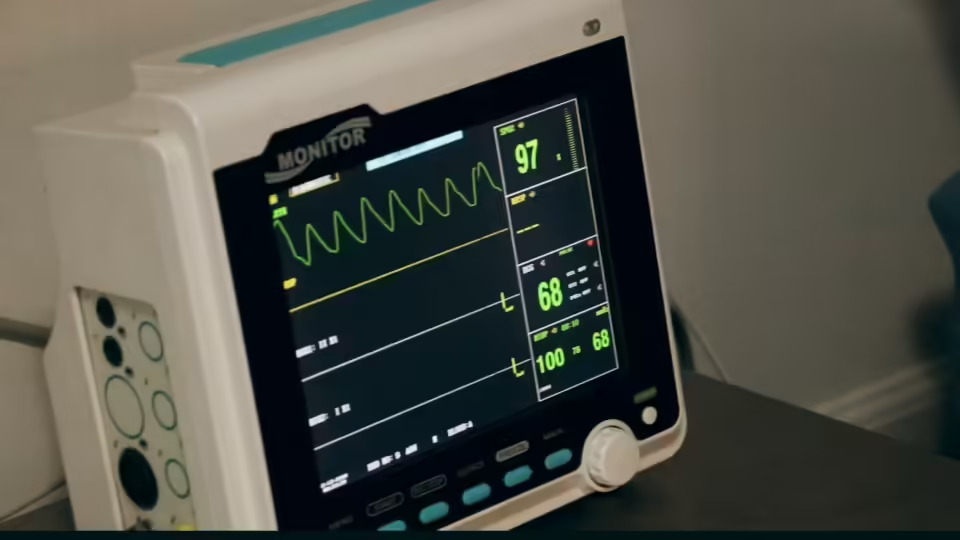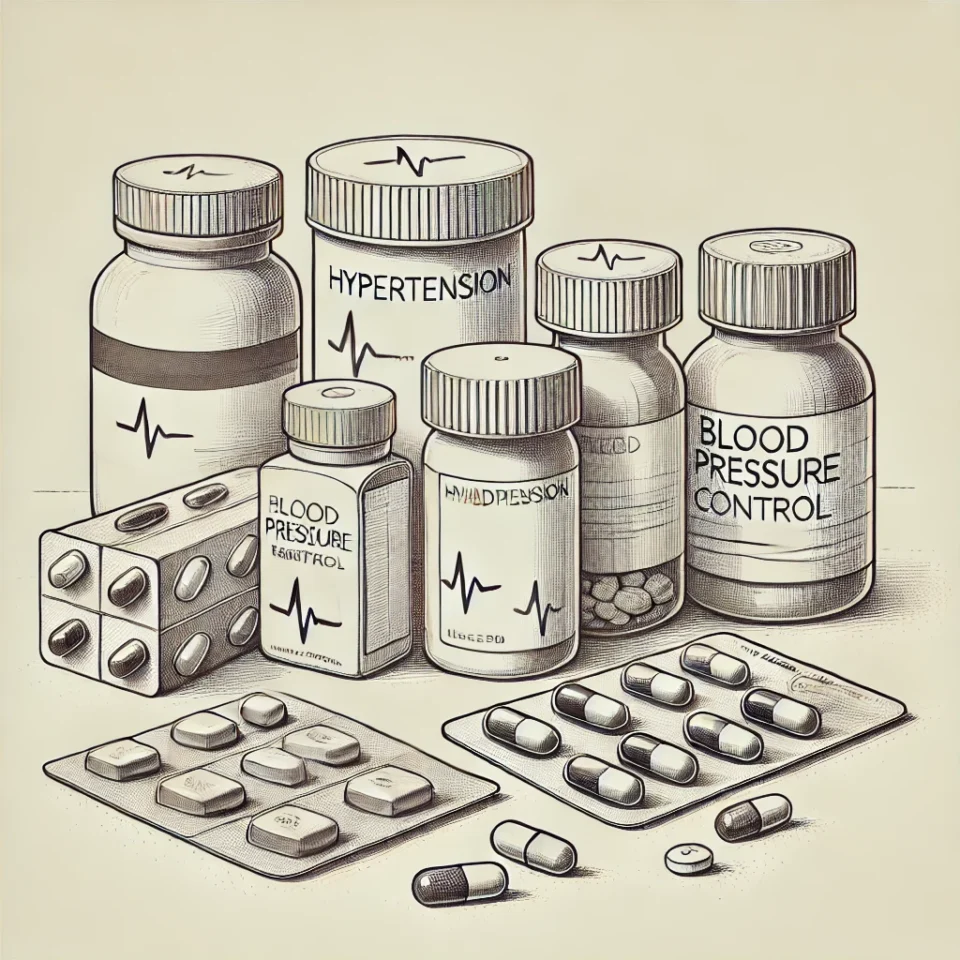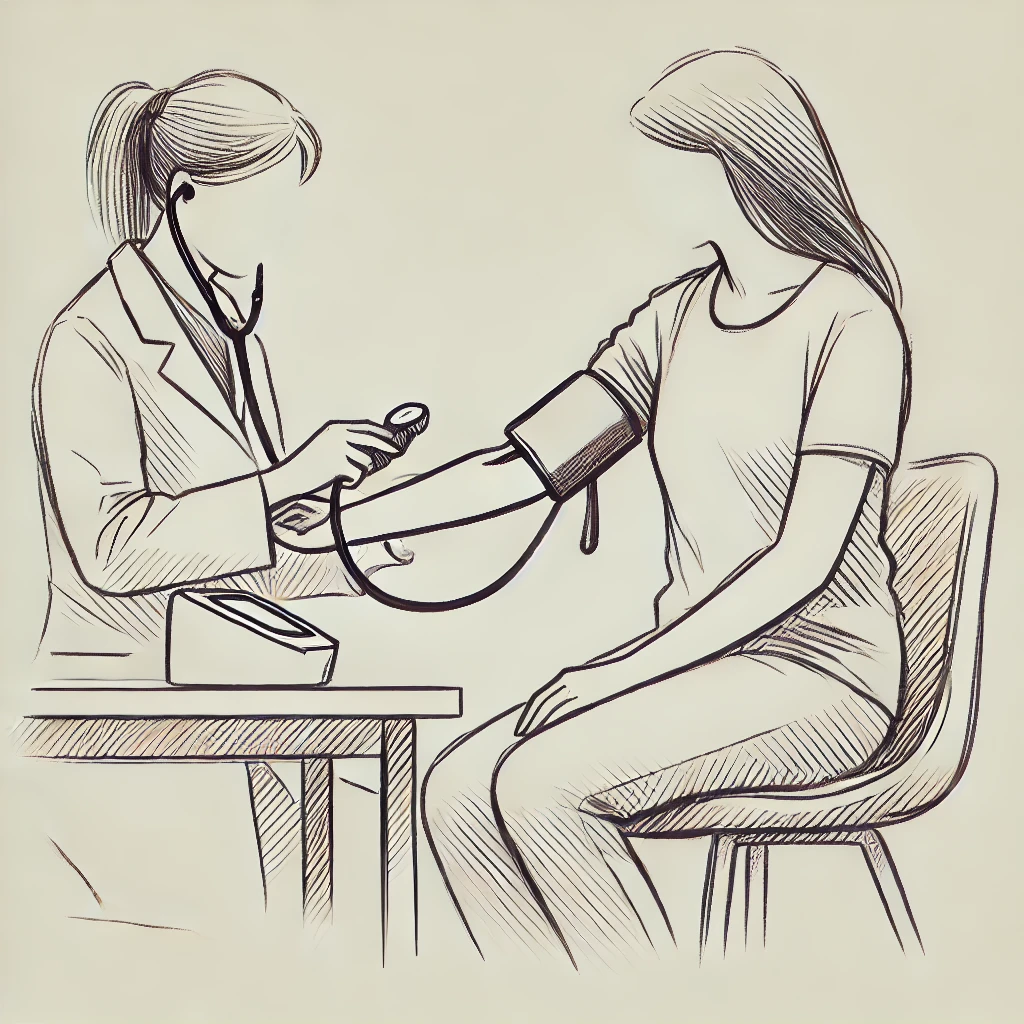Hypertension, also known as high blood pressure, is a common condition in which the force of the blood against the walls of the arteries is consistently too high. This can lead to serious health complications such as heart disease, stroke, and kidney failure. Blood pressure is measured in millimeters of mercury (mmHg) and is recorded as two numbers.
The first number, systolic pressure, measures the force of blood against the artery walls when the heart beats. The second number, diastolic pressure, measures the force of blood against the artery walls when the heart is at rest between beats. Normal blood pressure is typically considered to be around 120/80 mmHg.
Hypertension is diagnosed when blood pressure consistently measures at 130/80 mmHg or higher. Hypertension can be categorized into two types: primary (essential) hypertension and secondary hypertension. Primary hypertension is the most common type and develops over time with no identifiable cause.
Secondary hypertension, on the other hand, is caused by an underlying condition such as kidney disease, hormonal disorders, or certain medications. It’s important to note that hypertension often has no symptoms, which is why it’s often referred to as a “silent killer.” Regular blood pressure checks are crucial for early detection and management of hypertension. Hypertension is a serious medical condition that requires ongoing management to prevent complications.
It’s important to understand the causes, risk factors, symptoms, complications, treatment options, and prevention strategies for hypertension in order to effectively manage this condition and reduce the risk of associated health problems.
Key Takeaways
- Hypertension, or high blood pressure, is a condition where the force of blood against the artery walls is consistently too high.
- Causes of hypertension can include genetics, unhealthy lifestyle choices, and certain medical conditions.
- Risk factors for hypertension include obesity, lack of physical activity, excessive alcohol consumption, and high salt intake.
- Symptoms of hypertension may not be noticeable, but can include headaches, shortness of breath, and nosebleeds.
- Complications of hypertension can include heart disease, stroke, kidney damage, and vision loss.
- Treatment options for hypertension may include lifestyle changes, medication, and in some cases, surgery.
- Prevention of hypertension involves maintaining a healthy weight, exercising regularly, eating a balanced diet, and managing stress.
Causes of Hypertension
Primary Hypertension: A Complex Interplay of Factors
The exact cause of primary hypertension remains unknown, but several factors can contribute to its development. Genetics, age, race, and lifestyle choices all play a significant role in the onset of high blood pressure. Individuals with a family history of hypertension are more likely to develop the condition themselves, highlighting the importance of genetics. As people age, the risk of developing hypertension increases due to changes in the cardiovascular system. Additionally, certain racial groups, such as African Americans, are at higher risk for developing hypertension.
Lifestyle Choices and Their Impact on Blood Pressure
Lifestyle choices also play a crucial role in the development of hypertension. Factors such as a diet high in salt, low physical activity levels, excessive alcohol consumption, and smoking can all contribute to high blood pressure. Consuming too much salt can cause the body to retain fluid, which increases blood pressure. Lack of physical activity can lead to weight gain and increased strain on the heart. Excessive alcohol consumption can raise blood pressure and damage the heart over time, while smoking can damage the arteries and raise blood pressure.
Secondary Hypertension: Identifying the Underlying Cause
Secondary hypertension, on the other hand, is caused by an underlying condition that affects the kidneys, arteries, heart, or endocrine system. Conditions such as kidney disease, obstructive sleep apnea, thyroid problems, and certain medications can all contribute to secondary hypertension. Identifying and addressing the underlying cause of secondary hypertension is crucial for effective management of the condition.
Risk Factors for Hypertension

There are several risk factors that can increase an individual’s likelihood of developing hypertension. Some of these risk factors are modifiable, meaning they can be controlled or managed through lifestyle changes, while others are non-modifiable and cannot be changed. Modifiable risk factors for hypertension include unhealthy diet, lack of physical activity, excessive alcohol consumption, smoking, and stress.
A diet high in salt and low in potassium-rich foods can increase the risk of developing hypertension. Lack of physical activity can lead to weight gain and increased strain on the heart, raising blood pressure. Excessive alcohol consumption can raise blood pressure and damage the heart over time.
Smoking can damage the arteries and raise blood pressure. Chronic stress can also contribute to high blood pressure. Non-modifiable risk factors for hypertension include age, family history of high blood pressure, race, and certain medical conditions.
As people age, the risk of developing hypertension increases due to changes in the cardiovascular system. Individuals with a family history of high blood pressure are more likely to develop the condition themselves. Certain racial groups, such as African Americans, are at higher risk for developing hypertension.
Additionally, certain medical conditions such as kidney disease, obstructive sleep apnea, and thyroid problems can increase the risk of developing hypertension. Understanding these risk factors is crucial for identifying individuals who may be at higher risk for developing hypertension and implementing preventive measures to reduce their risk.
Symptoms of Hypertension
| Symptom | Description |
|---|---|
| Headache | Often the first symptom of hypertension |
| Shortness of breath | Difficulty breathing or catching breath |
| Chest pain | May be a sign of heart problems related to hypertension |
| Dizziness | Feeling lightheaded or faint |
| Blurred vision | Difficulty seeing clearly |
Hypertension is often referred to as a “silent killer” because it typically has no symptoms. Most people with high blood pressure are unaware of their condition until it’s detected during a routine medical check-up or when they experience a health crisis such as a heart attack or stroke. However, in severe cases or during hypertensive crises, individuals may experience symptoms such as severe headache, shortness of breath, nosebleeds, and chest pain.
Severe headaches can occur when blood pressure is extremely high and can be accompanied by dizziness and blurred vision. Shortness of breath may occur due to the heart having to work harder to pump blood throughout the body. Nosebleeds can occur when blood vessels in the nose become damaged due to high blood pressure.
Chest pain may occur if the heart muscle is not receiving enough oxygen due to high blood pressure. It’s important to note that these symptoms are not specific to hypertension and can be indicative of other health issues as well. Regular blood pressure checks are crucial for early detection and management of hypertension.
Complications of Hypertension
Untreated or poorly managed hypertension can lead to serious health complications that affect various organs and systems in the body. Some of these complications include heart disease, stroke, kidney disease, vision loss, and sexual dysfunction. High blood pressure can cause the arteries to become narrowed and hardened over time, leading to heart disease.
This can result in chest pain (angina), heart attack, or heart failure. Hypertension can also increase the risk of stroke by causing blood vessels in the brain to weaken or rupture. The kidneys play a crucial role in regulating blood pressure by controlling fluid balance in the body.
High blood pressure can damage the blood vessels in the kidneys and impair their function over time, leading to kidney disease or kidney failure. Hypertension can also affect vision by damaging the blood vessels in the eyes and increasing the risk of retinopathy (damage to the retina) or vision loss. Additionally, high blood pressure can affect sexual function in both men and women by reducing blood flow to the genitals and causing erectile dysfunction in men or decreased libido in women.
These complications highlight the importance of early detection and effective management of hypertension to prevent long-term damage to vital organs and systems in the body.
Treatment Options for Hypertension

Lifestyle Modifications
Lifestyle modifications are often recommended as a first-line treatment for mild to moderate hypertension. These modifications include adopting a healthy diet rich in fruits, vegetables, whole grains, and lean proteins; reducing salt intake; increasing physical activity; maintaining a healthy weight; limiting alcohol consumption; and quitting smoking.
Medication Options
If lifestyle modifications alone are not sufficient to lower blood pressure, medication may be prescribed by a healthcare provider. There are several classes of medications used to treat hypertension, including diuretics, beta-blockers, ACE inhibitors, angiotensin II receptor blockers (ARBs), calcium channel blockers, and others. The choice of medication depends on individual factors such as age, race, underlying medical conditions, and potential side effects.
Personalized Treatment Plans
In some cases of secondary hypertension caused by an underlying condition such as obstructive sleep apnea or kidney disease, surgery may be necessary to address the underlying cause and lower blood pressure. It’s important for individuals with hypertension to work closely with their healthcare provider to develop a personalized treatment plan that addresses their specific needs and minimizes the risk of associated health complications.
Prevention of Hypertension
Preventing hypertension involves making healthy lifestyle choices that promote overall cardiovascular health. Some key preventive measures include maintaining a healthy diet low in salt and rich in fruits, vegetables, whole grains, and lean proteins; engaging in regular physical activity; maintaining a healthy weight; limiting alcohol consumption; quitting smoking; managing stress; and getting regular check-ups with a healthcare provider. A healthy diet plays a crucial role in preventing hypertension by providing essential nutrients that support cardiovascular health and regulating blood pressure.
Consuming less salt and more potassium-rich foods such as bananas, spinach, and sweet potatoes can help lower blood pressure. Regular physical activity is also important for preventing hypertension by helping maintain a healthy weight and reducing strain on the heart. Aim for at least 150 minutes of moderate-intensity aerobic activity per week.
Maintaining a healthy weight is essential for preventing hypertension as excess weight puts additional strain on the heart and increases the risk of high blood pressure. Limiting alcohol consumption and quitting smoking are important preventive measures for reducing the risk of developing hypertension as both alcohol and tobacco use can raise blood pressure. Managing stress through relaxation techniques such as deep breathing exercises, meditation, or yoga can help lower blood pressure and reduce the risk of developing hypertension.
Regular check-ups with a healthcare provider are crucial for monitoring blood pressure levels and identifying any potential risk factors for developing hypertension. By implementing these preventive measures into daily life, individuals can reduce their risk of developing hypertension and promote overall cardiovascular health. In conclusion, hypertension is a common condition characterized by high blood pressure that can lead to serious health complications if left untreated.
Understanding the causes, risk factors, symptoms, complications, treatment options, and prevention strategies for hypertension is crucial for effectively managing this condition and reducing the risk of associated health problems. By making healthy lifestyle choices and working closely with healthcare providers to develop personalized treatment plans, individuals can lower their blood pressure levels and reduce their risk of developing hypertension-related complications. Regular check-ups with healthcare providers are essential for monitoring blood pressure levels and identifying any potential risk factors for developing hypertension.
By taking proactive steps to prevent hypertension through healthy lifestyle choices and regular medical care, individuals can promote overall cardiovascular health and reduce their risk of developing this serious medical condition.
FAQs
What is hypertension?
Hypertension, also known as high blood pressure, is a condition in which the force of the blood against the artery walls is consistently too high.
What are the risk factors for hypertension?
Risk factors for hypertension include age, family history, being overweight or obese, lack of physical activity, high salt intake, excessive alcohol consumption, and chronic stress.
What are the potential complications of hypertension?
Complications of hypertension can include heart disease, stroke, kidney damage, vision loss, and metabolic syndrome.
How is hypertension diagnosed?
Hypertension is diagnosed through blood pressure measurements. A diagnosis of hypertension is typically made if a person’s blood pressure is consistently at or above 130/80 mmHg.
What are the treatment options for hypertension?
Treatment for hypertension may include lifestyle changes such as a healthy diet, regular exercise, and stress management, as well as medication to lower blood pressure.
Can hypertension be prevented?
Hypertension can often be prevented or controlled through lifestyle changes such as maintaining a healthy weight, exercising regularly, eating a balanced diet low in salt, and limiting alcohol consumption. Regular blood pressure screenings are also important for early detection and management.
